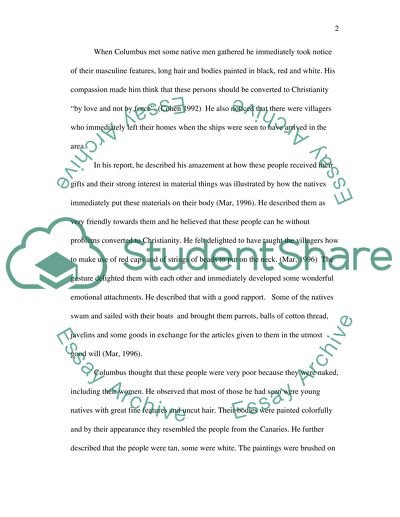Cite this document
(“Christopher Columbus, journal excerpts and letter Essay”, n.d.)
Christopher Columbus, journal excerpts and letter Essay. Retrieved from https://studentshare.org/history/1591633-christopher-columbus
Christopher Columbus, journal excerpts and letter Essay. Retrieved from https://studentshare.org/history/1591633-christopher-columbus
(Christopher Columbus, Journal Excerpts and Letter Essay)
Christopher Columbus, Journal Excerpts and Letter Essay. https://studentshare.org/history/1591633-christopher-columbus.
Christopher Columbus, Journal Excerpts and Letter Essay. https://studentshare.org/history/1591633-christopher-columbus.
“Christopher Columbus, Journal Excerpts and Letter Essay”, n.d. https://studentshare.org/history/1591633-christopher-columbus.


